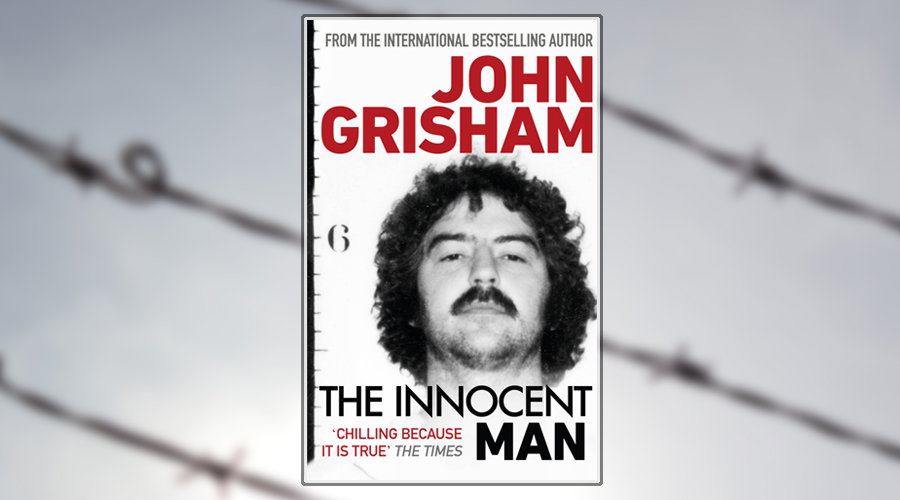The Defenders Season 1 Review: Is the Netflix superhero team-up worth watching?
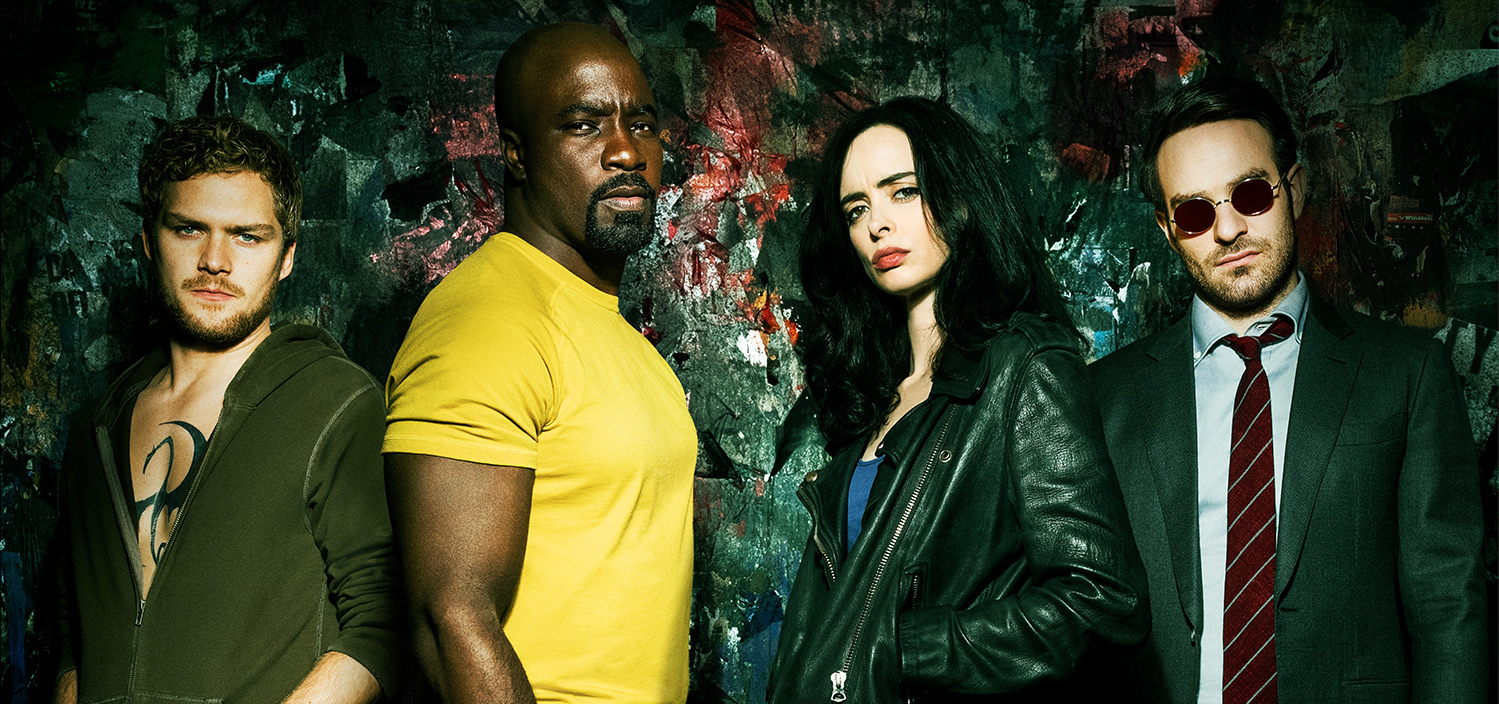
There is a certain irony in the basic structure of The Defenders. A common criticism of all five seasons of the Marvel/Netflix partnership has been that, at 13 episodes a season, they’re just too long, each time stretching the plot further than it can successfully go. Either they sag in the middle, are too slow to start, or stumble to the finish. At least, that’s the general opinion. It’s funny then, that at only 8 episodes, The Defenders ends up feeling not long enough. Part of it certainly is a simplistic – and insatiable – yearning for more; after all the build-up, who wouldn’t want an extended payoff? But more significantly, where the individual shows at times struggled to fill the time, The Defenders is bursting with possibilities, and hamstrung by design.
In attempting to bring four disparate characters together in a way that doesn’t feel too contrived, the show takes nearly three full episodes to get to the point where they finally converge at Midland Circle. Even then, it’s still slightly clunky, a giant ‘fancy seeing you here’ that also happens to involve The Hand and costumed vigilantes. But those three episodes feel necessary to at least bring everyone close enough that they could possibly clash paths. Last time we saw him, Luke was heading back to Seagate to serve the rest of his sentence; last time we saw them, Danny and Colleen had just discovered that K’un-Lun had just vanished. If getting them back to New York and into the action felt cheap over three episodes – and in vanishing away Luke’s prison sentence, even via the case files Bobby Fish found at Pop’s at the end of Luke Cage, it does diminish the importance of his choice to go back willingly at the end of his show – just imagine how it would have been crammed into one.
The problem, though, is that while the time taken is necessary, by the time episode four – a functional but unavoidable 45 minutes devoted to properly introducing the characters to each other over a hideout dinner at the Royal Dragon – is over, half the season is gone too. Suddenly, an eight-episode team-up miniseries only has four episodes left for the team-up part, and such is the gravity of the situation created to bring them all together, there isn’t really a middle; the setup ends, and the extended finish begins. The chemistry and dialogue of the back half of the season treats the team as lifelong friends – Jessica pays Matt a mild compliment, which he says is the “nicest thing you’ve ever said to me”, ever having been a matter of days and a number of conversations you could probably count with two hands. It’s the kind of ‘banter’ that the show exists to provide us with, seeing unlikely allies with vastly opposing personalities brought together, but with the shorter length, that banter is feels expedited, and slightly artificial.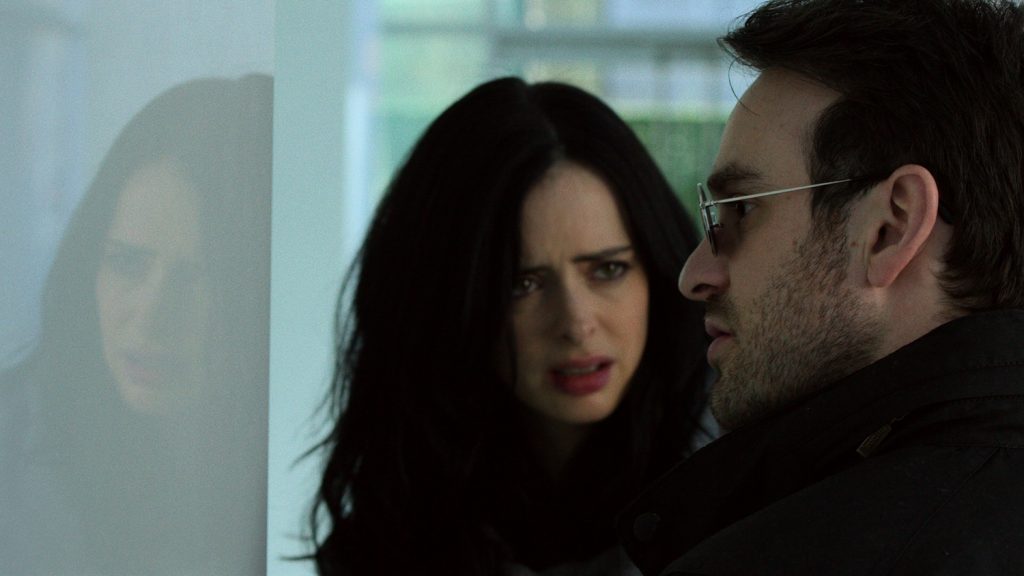 It’s not just the lead characters who suffer. Sigourney Weaver breathes life into every role she plays – even those, like Alexandra, whose lives have been artificially prolonged far past the usual expiry date – but unlike Gao and Bakuto, familiarised and established through previous appearances in the other shows, Alexandra’s entire arc is in The Defenders, and unlike the other two ‘Fingers of the Hand’ – Babs Olusanmokun’s Sowande, and Yutaka Takeuchi’s Murakami – she’s meant to have more substance to her than just pure villainy. But she’s introduced, we learn that she’s dying, we see her controlling but wavering dominance of the Hand’s leadership cabal, and then Elektra kills her in episode six and that’s her lot. Perhaps her role was just to create a vacuum for Elektra to step into, but it felt like a waste to not give her more to do before then.
It’s not just the lead characters who suffer. Sigourney Weaver breathes life into every role she plays – even those, like Alexandra, whose lives have been artificially prolonged far past the usual expiry date – but unlike Gao and Bakuto, familiarised and established through previous appearances in the other shows, Alexandra’s entire arc is in The Defenders, and unlike the other two ‘Fingers of the Hand’ – Babs Olusanmokun’s Sowande, and Yutaka Takeuchi’s Murakami – she’s meant to have more substance to her than just pure villainy. But she’s introduced, we learn that she’s dying, we see her controlling but wavering dominance of the Hand’s leadership cabal, and then Elektra kills her in episode six and that’s her lot. Perhaps her role was just to create a vacuum for Elektra to step into, but it felt like a waste to not give her more to do before then.
Yet there wasn’t time to give her more to do, because her death was an ‘end-game’ twist that happened at what would have been the middle point of any of the other shows. Cottonmouth’s death in Luke Cage was also in episode six, but that was after a season until that point that had focused on him extensively, as the other side of the coin to Luke, and which had the length to foreshadow that death with flashbacks to earlier points in his life, and not have to worry about setting up the ending at the same time. None of this can, or does, apply to Alexandra, and so she becomes a far more forgettable character than any Sigourney Weaver character should be.
The same issues apply to most of the supporting characters transported from the other shows. It’s undeniably hard to write proper arcs for everyone, but the solution to this ends up being a case of just sticking them all in a box – the Harlem police station, for what turns out to be completely unnecessary ‘protection’ given the Hand never even mention attacking the station or its inhabitants – and basically leaving them there for much of the season. Those who can fight – Stick, Colleen, Misty, and by way of her continually inexplicable ability to defeat Hand warriors with far more training than her, Claire – have proper roles, but those that don’t – Foggy, Karen, Trish, Malcolm – are essentially there for the leads to bounce off when the script calls for it. Ward Meachum is absent from the show by way of a ‘business trip’, paving the way for Danny to go to Midland Circle by himself as the representative of Rand, which kind of begs the question, why wasn’t the same done for some of the others? It would’ve been better to make up a single-line sick note than to shoehorn them into situations that don’t really progress the characters themselves.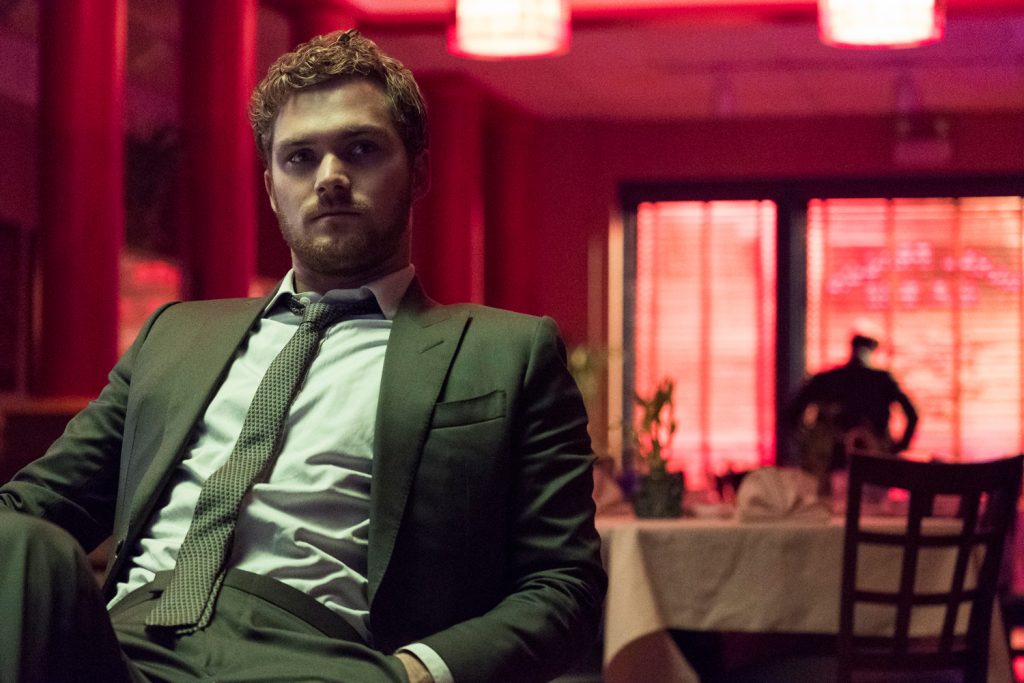 With the singular focus on the fight against the Hand, The Defenders becomes an entertaining but limited frenzy. It’s a maelstrom that makes for brilliant entertainment, but that stifles thematic storytelling by removing a large element of choice from the equation. The fact that they’re all somewhat reluctant superheroes – who hate the ‘H word’ – is what has made them so compelling over the course of the previous 65 episodes of screentime, but in this context, it makes events more linear. They all converge at Midland Circle, and from there, they sort of stumble from one event to the next. They’re forced to make choices that really don’t have any alternatives, and thus don’t feel like choices at all. Jessica chooses to return and fight in episode 4, but that was only a matter of timing, given the impossibility of the show just having her absent for any significant period of time. The group decide to keep Danny prisoner to avoid capture by the Hand once they find out the Hand want to use him, rather than kill or turn him, but they were already in hiding with him for the few episodes before that ‘choice’. It ends up just being a new location, rather than a changed dynamic, and a way for Danny to be powerless when Elektra turns up and kills Stick.
With the singular focus on the fight against the Hand, The Defenders becomes an entertaining but limited frenzy. It’s a maelstrom that makes for brilliant entertainment, but that stifles thematic storytelling by removing a large element of choice from the equation. The fact that they’re all somewhat reluctant superheroes – who hate the ‘H word’ – is what has made them so compelling over the course of the previous 65 episodes of screentime, but in this context, it makes events more linear. They all converge at Midland Circle, and from there, they sort of stumble from one event to the next. They’re forced to make choices that really don’t have any alternatives, and thus don’t feel like choices at all. Jessica chooses to return and fight in episode 4, but that was only a matter of timing, given the impossibility of the show just having her absent for any significant period of time. The group decide to keep Danny prisoner to avoid capture by the Hand once they find out the Hand want to use him, rather than kill or turn him, but they were already in hiding with him for the few episodes before that ‘choice’. It ends up just being a new location, rather than a changed dynamic, and a way for Danny to be powerless when Elektra turns up and kills Stick.
Ostensibly, the single serious, significant ‘choice’ comes in the final episode, as Matt chooses Elektra, definitively, staying to attempt to talk her down, rather than fleeing the imminent blast with the others. In principle, it’s a choice that serves to reinforce most of Daredevil season 2; that Elektra is the only person who completely understands him, and perhaps, who makes him feel truly complete and alive. But I emphasise most – not all – because in practice, it undermines Matt’s decision to reveal his identity as Daredevil to Karen at the end of season 2, a decision that removed a key obstacle to Matt’s ability to be open and truly be himself with Karen as he is with Elektra, and given his unsurprising survival, ends up basically being a writing cop-out.
If he was choosing death and Elektra over life without her and facing the fatal consequences of that choice, then that would be one thing. Instead, his decision to choose Elektra is devoid of consequence; if he survived, then presumably so did she, and so we’re back to square one, but for 15 minutes of faux-martyrdom and mourning that also overshadow the genuine trauma of Misty losing her arm, even if she’s probably getting a robotic one from Rand as a replacement. But Matt’s situation, bar the easter-egg introduction of his mother, Sister Maggie, and the potential beginning of the ‘Born Again’ storyline, remains largely unchanged; he loves Elektra, cares for Karen on some level approaching love, and will continue to ‘balance’ – that is, to totally fail to address – that personal conflict until outside influences compel him to do otherwise. For those with a passing awareness of the Daredevil comics, Bullseye’s potential appearance as the season 3 villain seems particularly relevant here.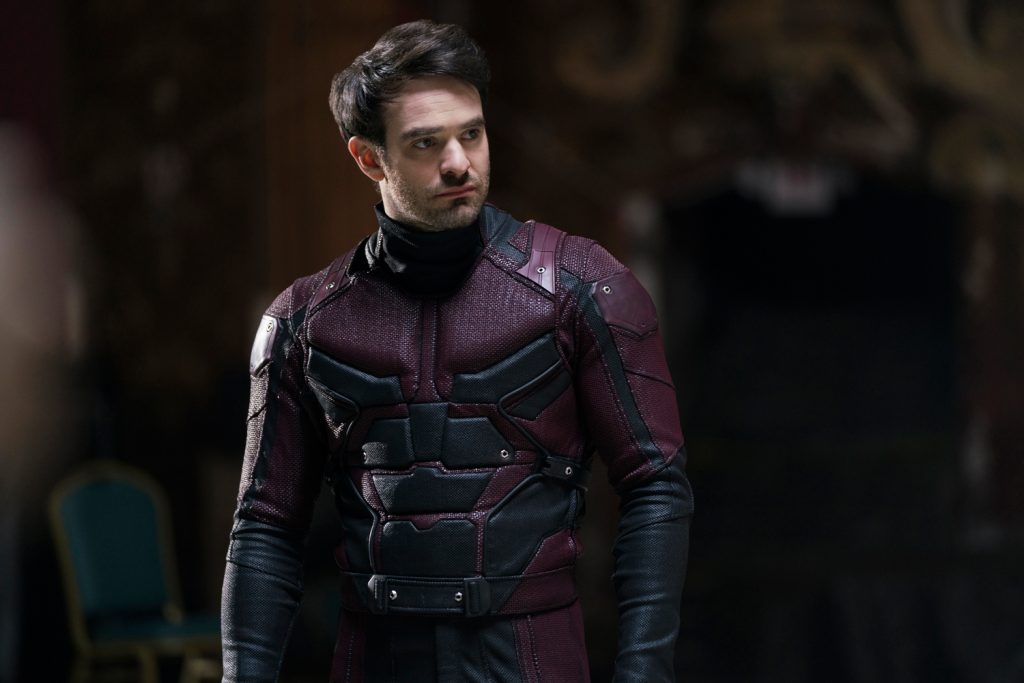 The Defenders as a show suffers from the absence of choice, but one particular character actually benefits from it. It would be hard to not improve on the horror story that was Iron Fist – and having watched it again as part of my pre-Defenders re-binge, I can say it’s even worse when you know that the ending is just as terrible as the beginning and middle – but the improvement is still there. The Defenders version of Danny has better writing, and a more polished arc, but most importantly, he benefits from not always being the one in charge. The plot of Iron Fist was dictated almost entirely by Danny’s stupid decisions – starting with him turning up at Rand Enterprises after 15 years MIA, presumed dead, in ragged clothes and no shoes, with no proof of his identity, expecting to just be taken at his word, and getting progressively worse from there – and when it wasn’t his stupid decisions, it was someone else’s.
The Defenders as a show suffers from the absence of choice, but one particular character actually benefits from it. It would be hard to not improve on the horror story that was Iron Fist – and having watched it again as part of my pre-Defenders re-binge, I can say it’s even worse when you know that the ending is just as terrible as the beginning and middle – but the improvement is still there. The Defenders version of Danny has better writing, and a more polished arc, but most importantly, he benefits from not always being the one in charge. The plot of Iron Fist was dictated almost entirely by Danny’s stupid decisions – starting with him turning up at Rand Enterprises after 15 years MIA, presumed dead, in ragged clothes and no shoes, with no proof of his identity, expecting to just be taken at his word, and getting progressively worse from there – and when it wasn’t his stupid decisions, it was someone else’s.
At least here, he’s a character driven by ensemble opinion, and one whose world actually includes the existence of the police. He’s still bratty, arrogant, limited, and not nearly as charming as he’s meant to be, but here, that’s contextualised by characters written to see him exactly like that. Danny might be the most important character in The Defenders, by virtue of being the Iron Fist, but that doesn’t mean everyone just follows his stupid orders until they have stupid consequences. Though, it will be interesting to see how his new status as Daredevil’s (temporary) replacement as a street-level hero meshes with the vendetta of Joy and Davos – and Gao, if she survived the collapse of Midland Circle – whenever Iron Fist gets plastered on our screens again.
Indeed, this echoes a broader issue facing all the shows. Marvel’s cinematic ‘Phase 2’ – post-Avengers – faced the issue of providing reasons for the characters to remain largely separate; to explain why Captain America didn’t show up to help Tony Stark save the President in Iron Man 3, or why the other Avengers didn’t step in to show support when Malekith was tearing up London in Thor: The Dark World. The television ‘Phase 2’ might face the same issue. Indeed, it already has, partly, when Daredevil and Stick remained conspicuously absent from the fight against Gao, Bakuto and the Hand in Iron Fist. Now, the problem is amplified by the fact that they’re all now aware of each other. Obviously, for the sake of characterisation and narrative, each lead needs their own setting, to explore their own relevant stories, but when it comes to taking down threats, there’ll need to be careful planning to give everyone reasons to stay separated. If Bullseye shows up in season 3 of Daredevil, for example, complete with his projectile powers, it would seem pretty logical for Matt to just call Luke up and stick him in the way of everything using his bulletproof skin.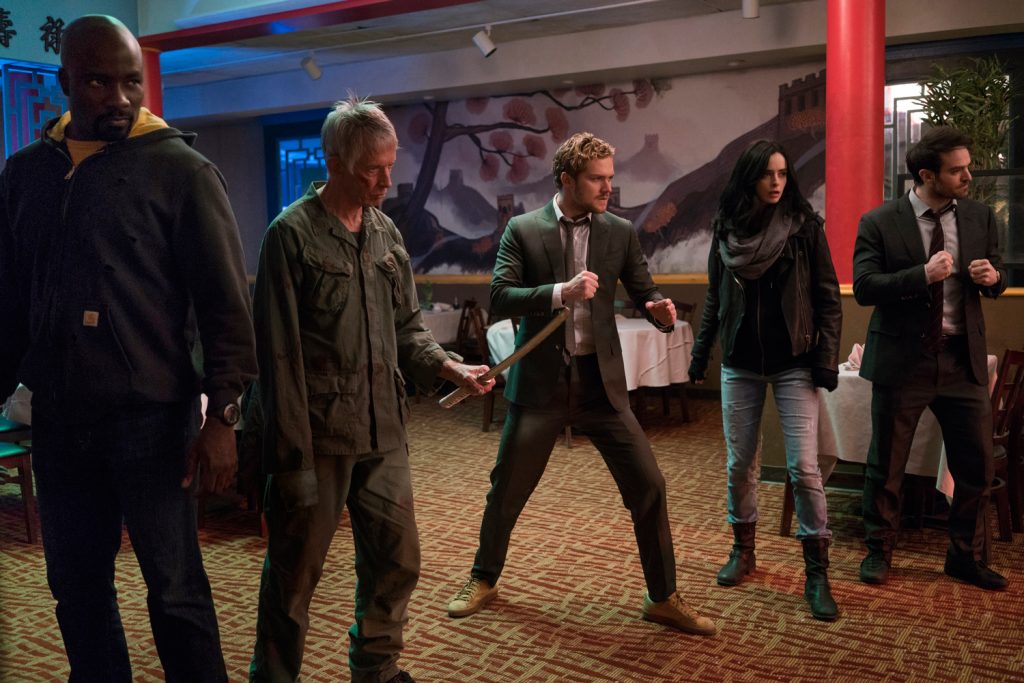 The cinematic Phase 2, of course, ended with the Age of Ultron, a second team-up for the Avengers, and it seems logical that so long as the individual shows continue, there’ll also be a second Defenders season, somewhere down the line. It’s a paradox of sorts, though; should the individual shows become less, well, individual, exploiting the new relationships and criss-crossing chemistry established here, then will there be quite so much momentum or justification for a distinct crossover season?
The cinematic Phase 2, of course, ended with the Age of Ultron, a second team-up for the Avengers, and it seems logical that so long as the individual shows continue, there’ll also be a second Defenders season, somewhere down the line. It’s a paradox of sorts, though; should the individual shows become less, well, individual, exploiting the new relationships and criss-crossing chemistry established here, then will there be quite so much momentum or justification for a distinct crossover season?
So, the future’s unclear and the present a bit muddled, but was it worth it? Absolutely, and not quite, both at the same time. It really depends on what part of the shows so far you’ve enjoyed or been there for. Those simply there for the superheroic extension of Marvel will likely have enjoyed this latest, and most superheroic, extension of Marvel, because it’s a collection of the exact moments we were all excited for when The Defenders bonanza was first announced, with less of the ‘window dressing’ of the individual shows.
But there are those, like me, who enjoyed that window dressing; the ensemble character work of the other shows – the disintegration of Matt’s personal life in Daredevil, the exploration of Kilgrave’s gaslighting, and Jessica’s subsequent PTSD in Jessica Jones, the social and cultural questions posed in Luke Cage, and the whatever-the-fuck you could possibly think was remotely interesting about Iron Fist other than Ward’s perpetual bafflement and parental abuse – either by accident after expecting just the super-heroism, or by intention through the potential of a more adult part of the Marvel universe. The Defenders is undoubtedly, supremely, entertaining. It’s up to each viewer, though, as to whether that’s enough.
★★★

